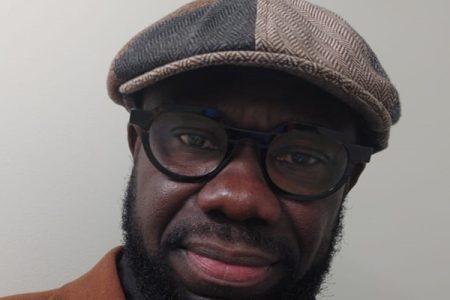First, we started the jollof war and left the verdict for the Senegalese, who, instead of coming out with the winner, joined the war with the French jollof.
For a neutral arbiter, we looked to the Cameroonians but they have lately joined the competition, too.
The second war was to cement or refute the suspicion that Nigerians make better boyfriends than Ghanaians.
Our ladies are yet to pronounce the winner after Balthazar Engonga joined the contest, even though Ghanaian ladies say Nigerians pay big for transport and are quick to open the car door for a lady.
However, it seems Equatorial Guinea has raised the bar 400 times higher.
Ghanaians work harder
Last week, we nearly started another war when we celebrated Nigerian-born Kemi Badenoch, leader of the Conservative Party in the UK, as our person of the year 2024.
In that edition of Tissues of the Issues, we alluded to the audacious and venturesome nature of Nigerians and wondered whether that trait spurs Nigerians like Kemi on to do greater things in a foreign land–even as a first generation immigrant.
Is Kemi an outlier from a Nigerian stock (Nigerians see Kemi more as oyibo who is not culturally African) or just another brilliant lady whose rise has been made possible by a system that works.
She is married to oyibo and may not serve pounded yam, ‘egusi’ or ‘ogbono’ soup to her children in their English home.
The debate dates back several decades but there are also records of recent discussions on the subject.
In 2018, BBC news pidgin cited a Bloomberg research which ranked Ghanaians as the most hardworking immigrants in the USA, putting Nigerians eighth on the table.
Kenya came third, Ethiopia fourth and Liberia ninth.
The report also ranked Saudi Arabia first for countries with the highest number of immigrants pursuing higher education, citing Kenya, Ghana, Nigeria and Nepal among nations that also prioritize advanced learning in the USA.
I wish I was not the person to broach this controversial subject. My line of business qualifies me to assess agelong immigration patterns and recent trends, and gauge the comparison between the nationals of the two countries.
And for what it’s worth, I am a Ghanaian immigrant in Canada. Like a beautiful landscape to a painter, I have seen enough to paint my own immigration picture, to be able to evaluate other paintings along the way.
Modern immigration, I have come to learn, is like a marriage between repented fornicators: they take a chance on each other’s artificial fidelity and wait for who might cheat first.
You are married to the host country after the Green Card or PR Card, but you get to do the prenuptials much later.
Komla Dumor
Let’s start with the story of Komla Dumor, a former BBC presenter of Ghanaian origin, and what he made of the Ghana-Nigeria love affair.
Komla lived in Nigeria and could recite their national anthem very fluently, even though his uncles were behind the composition of Ghana’s anthem.
In a TEDxEuston presentation where he masterfully told the African story, Komla shared how a former Nigerian finance minister mistook him for a Nigerian because she found him very confident.
When he narrated the incident to then President Olusegun Obasanjo, the old man asked: “so, what is your problem?”
Did Baba Obasanjo just endorse the other side of “Ghana Must Go”?
Ghanaians also remember the sentiments that fed the Aliens Compliance Order in 1969. Now, it is all settled. We are good friends again.
The Ghana-Naija one-eye-open-romance is a numbers game. Unbeknownst to all of us, President Mahama of Ghana betrayed the spirits behind this conspiracy when he inadvertently referred to Bola Tinubu as the president of the Federal Republic of Ghana, in his recent inaugural address.
As a carryover of what may be a virtue, Nigerians double or triple the Ghana population abroad.
Apart from marriage, we pretty much do stuff together, especially church, and trade quite well in our murmurings about politics and resource mismanagement in Africa.
The difference, however, is that while the Nigerian immigrant makes a permanent home of his new address, the Ghanaian stretches one foot wide to where he calls home in Ghana and suspends the other in abrokyire. Yet, he never really wants to go home.
Premier Uzoma Asagwara
Years ago when this column attempted to track and interview big African names in Canada, we were overwhelmed by the numbers. We aborted the project to avoid a personality contest.
However, with the appointment of Prof Wisdom Tettey, a globally-relevant public intellectual of Ghanaian origin, as the first black president and vice-chancellor of Carleton University in Canada, our curiosity is piqued to resume the exercise.
More than Tettey’s, we were proud to toast Nigerian-born Uzoma Asagwara, when she was appointed deputy premier and health minister of the province of Manitoba in 2023.
There is more: we recall the appointment of Kaycee Madu and Akilosa Ufodike, two Nigerian-Canadians, to the cabinet of the government of Alberta in 2022.
There are greater successes in other sectors.
These are epochal moments for the black community. As we write, Nigerian gospel supremo Nathaniel Bassey, is preparing his flute to lead President Trump’s inauguration in worship on January 20.
These trailblazing moments, however, should not diminish the contributions of African immigrants in areas such as cleaning, truck driving, uber food delivery and factory work.
There are no small roles; only small parts–and we all play the part–as Ghanaians, Nigerians, Ethiopians and Somalis, to enrich the immigration story.
Tissues of The Issues
Kwasi Tawiah-Benjamin
bigfrontiers@gmail.com
- Monday, May 12, 2025 Newspaper Headlines - 12 May 2025
- With honour culture, Mahama wouldn’t need appointee Code - 12 May 2025
- Dollar role under pressure from portfolio rebalancing - 11 May 2025

